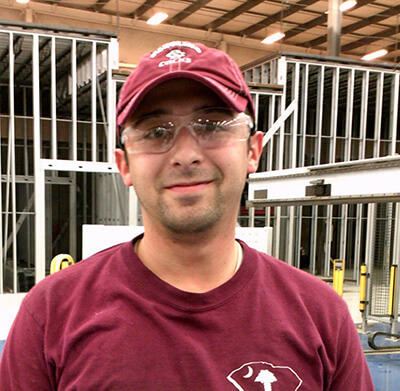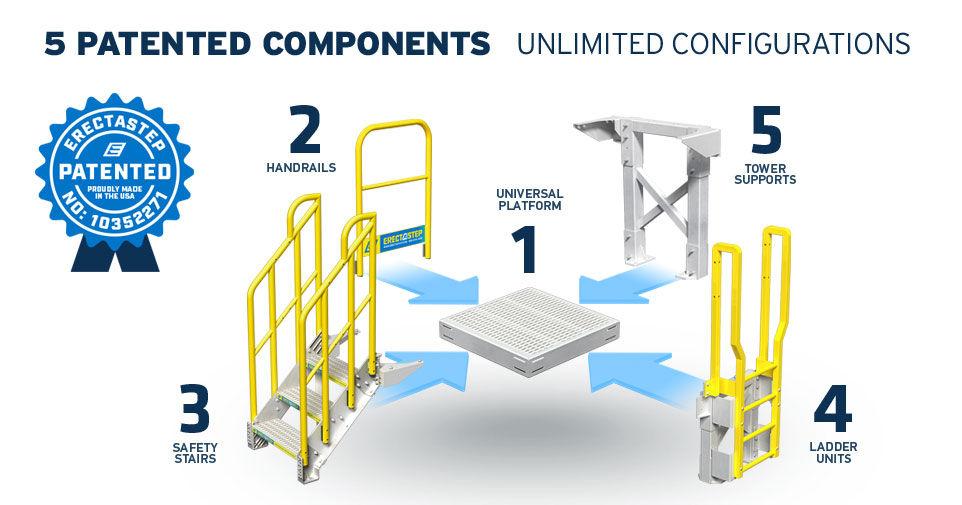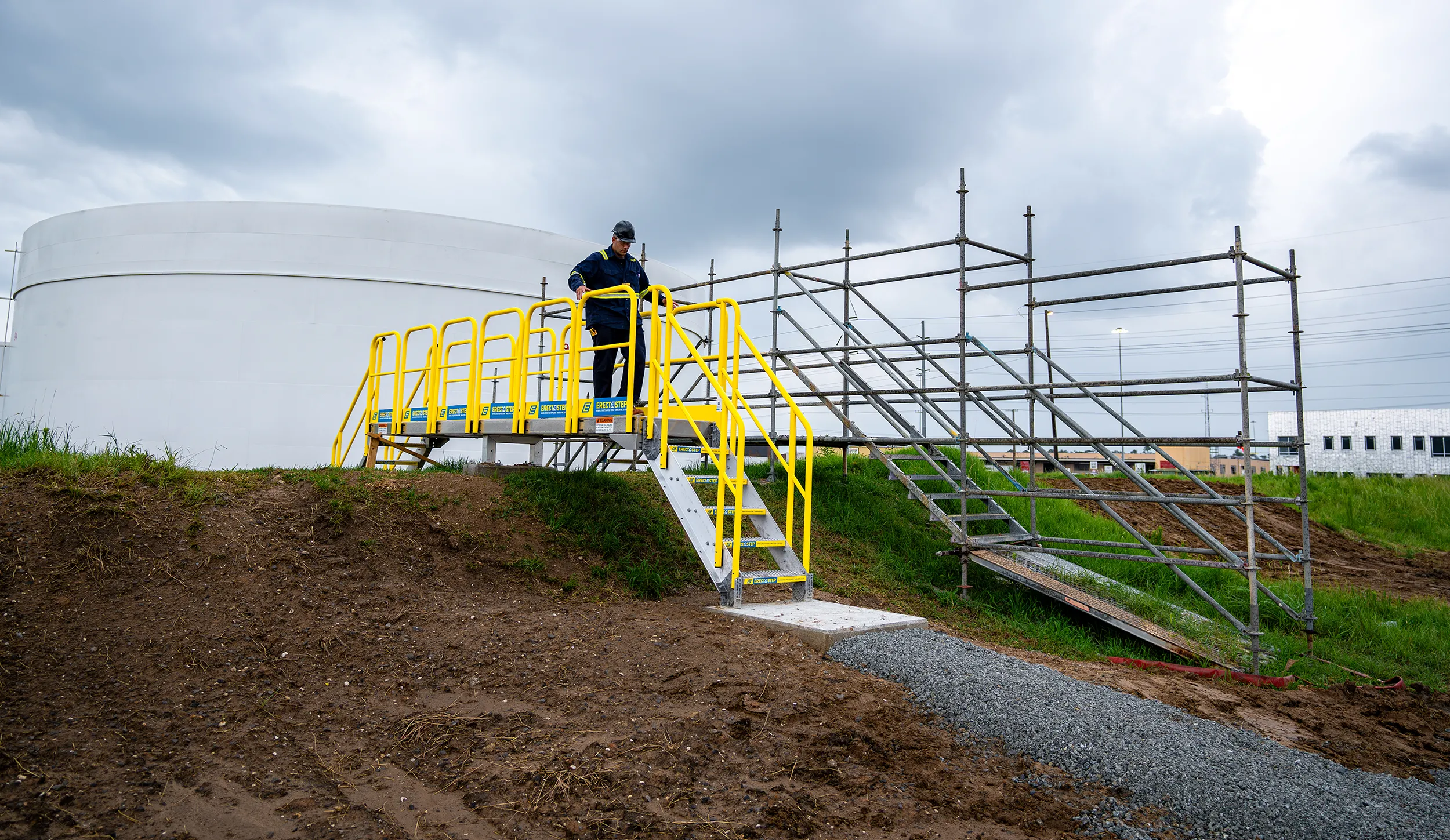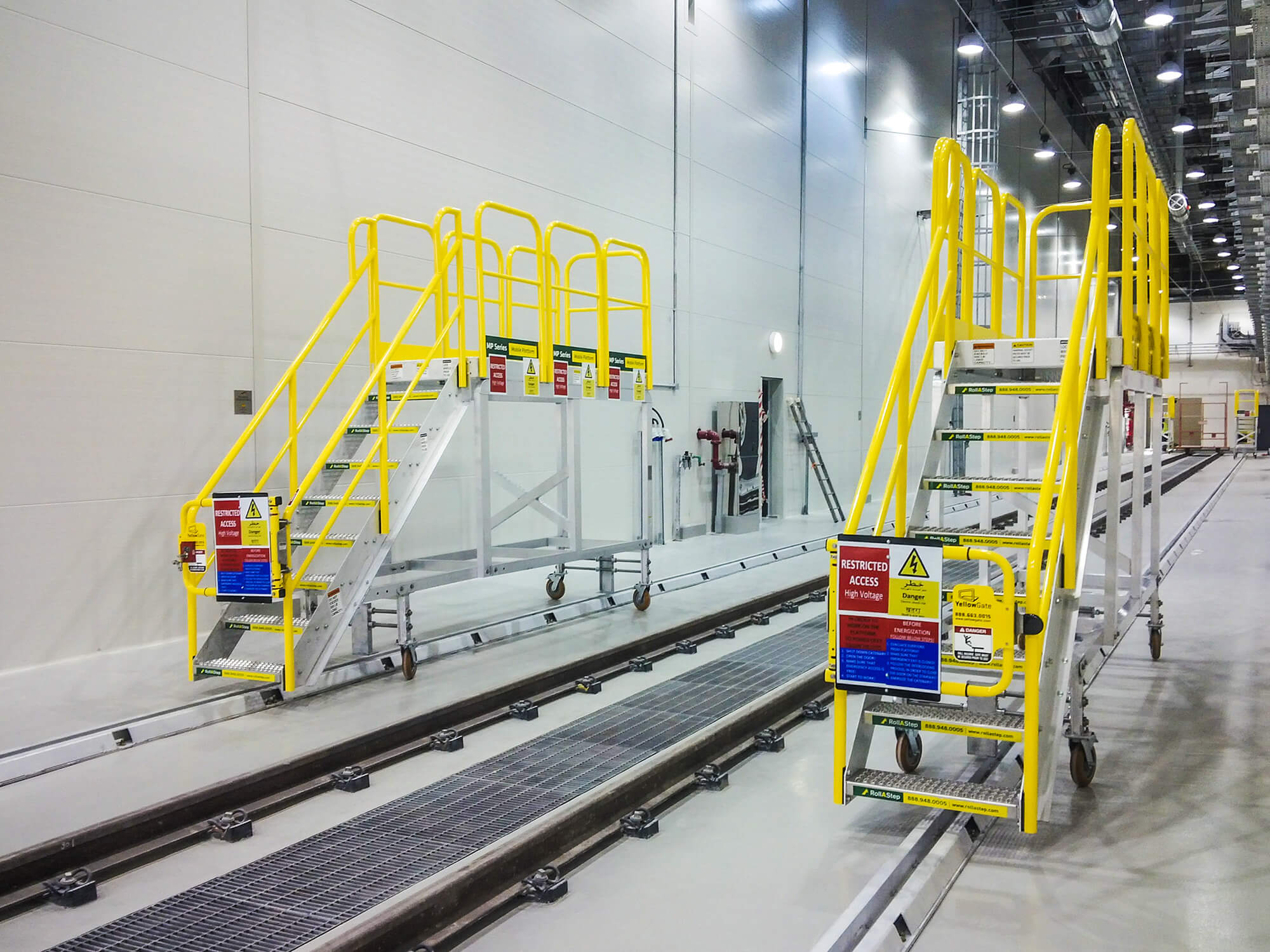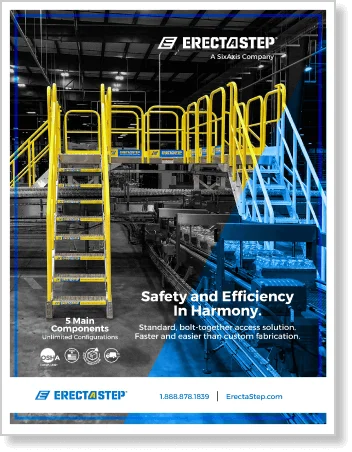Q&A with an ErectaStep Employee: Colby Huggins, Team Leader
Two big things we pride ourselves on here at ErectaStep are our safety principles and the incredible career advancements our employees have achieved. We invest heavily in our people, as we know they’re our greatest assets as a company.
With this post, we begin our employee Q&A series, where we offer a behind-the-scenes look at the team behind ErectaStep products. You’ll hear from the people who work day in and day out to bring you the safest and highest quality solutions.
Today’s interview features Colby Huggins, who’s achieved incredible career growth over the past few years. Here, we get more details on his career path and how the ErectaStep team keeps safety top of mind at all times.
Q: What does the role of Team Leader entail?
A: As Team Leader, I supervise five employees. Our team builds the YellowGate line of safety products you see on our website. All of the parts we make right here in house. Anything that involves assembling, constructing the parts or packing with YellowGate and some ErectaStep products, my team works on. One of our major tasks is cutting the majority of the aluminum parts that are later used for our platform systems. I also control the inventory of materials.
Q: Describe your career advancement at YellowGate. It sounds like you’ve made some significant advances in a rather short period of time.
A: Absolutely. In April of 2012, I took a job in the shipping department — the most entry-level job they had. I held this position for about five months (working outside for the most part), until I received an opportunity to move into the technology center and become a machine operator. I was fully trained on the “punch press” machine, which makes all ErectaStep platforms, steps, universal bodies for gangways, and can also punch individual parts out of sheet metal.
I did this job for two years, until I was offered a promotion to be a Team Leader for the night shift. I took that position and stayed there until the end of 2015, when I was offered team leader position for the day shift, in addition to the responsibility of running the YellowGate departments. That’s how I got to where I am today.
Q: How did you learn all of the new technologies and machines so quickly?
A: Training is key. It was mostly through hands-on training with my supervisor. One of the great things about moving to the tech center was having my department supervisor conduct one-on-one trainings with me on how to use the computerized machines. It’s rewarding to learn the ins and outs of new machines and knowing you can do the job to the best of your ability.
ErectaStep is a good place to get hands-on training, and with this comes the opportunity to move up very quickly. If an entry-level welder or operator has been showing extra effort, leaders give them a chance to move up and learn new product sets. Then they’ll hire someone else to replace them. This way, you have a good shot to progress up through the company.
Q: How important is safety to team dynamics and your team itself?
A: Safety is paramount to my job and those working for me. We work a very fast-paced job, from 7a.m. – 5p.m. to ensure we meet delivery expectations. Therefore it’s critical that as a team, every member takes the initiative to read safety violations and prevent injuries where possible.
There are so many things that need to be done during the day: Maintaining the stock levels, ensuring that welders have enough time to do their job, handling various chemicals, and using equipment in a safe manner. Each team member has their own specific duties and is responsible for knowing the safety rules that pertain to their roles. Everyone has their assigned job, but we also make sure people are trained on many tasks and know how things flow so anyone can fill in if needed.
In my case, I play a supervisory role for safety and help others follow safety rules while ensuring I do the same.
Q: Are there any particular safety standards that you follow?
A: Yes. A lot of the rules we follow are Occupational Safety & Health Administration (OSHA) rules. We make sure that every single aspect of our working life is on point in case we’re investigated or safety audited. I say this not to instill paranoia in the team but rather to have a standard that we can adhere to and rely on. We need to make sure our machines meet the safety quality required, and that our working protocols meets OSHA standards. Otherwise there are punishments ranging from substantial fines to job termination.
Q: Which safety precautions do you take as part of your job?
A: We hold weekly safety meetings with a representative from each department and our safety manager. We take a new topic each week, from proper machine handling to how to wear safety goggles, keeping everyone fresh on safety preparedness.
Then each month, our safety committee meets for a safety audit. This is a committee chosen by team leaders and supervisors. Each month, we discuss safety topics, work-related injuries, any recent lost time incidents, and what we can do to better ensure everybody’s safety. We reward employees for following safe work practices, which provides them an incentive to think twice before they make a decision that could put themselves or others in jeopardy.
Additionally, we also hold production meetings each morning to forecast what needs to be done to make our products, and what tasks must therefore be scheduled. Planning this out in a thoughtful way ensures nobody is rushing the job, compromising quality and safety for quantity.
Q: What new safety measures or procedures emerge from these meetings?
A: We’re always finding ways to improve. Coming out of our safety committee meetings, we’ve implemented a few things, such as updated guarding around machines, making sure trade wires and extension cords are handled properly, and covering electrical outlets adequately.
Everything we implement comes from a list of OSHA-regulated risks, and as we go through and find something that needs updating, we simply file a maintenance ticket and our maintenance team comes to take care of it.
Q: Do you have any recommended safety tips for our readers?
A: Make sure everybody knows to take their time. Rushing is probably one of the most unsafe things you can do. Our industry is a fast-paced one that can be quite dangerous, but as long as you keep safety standards top of mind and use the most updated products, you’ll be on your way to a safer workplace.
Q: Any closing remarks that you would like to share with our readers?
A: In many companies, employees fear technology. But with every new machine or innovation coming to the floor, that’s a chance to learn something new. In a company that offers growth opportunities (like ErectaStep does), operators have the chance to learn new product sets and add new expertise to their careers. This integrated training and career growth is not only rewarding for the individuals, but extremely sustainable for the company.
Do you have any additional questions you’d like to ask the team about safety? Contact your ErectaStep representative here.
